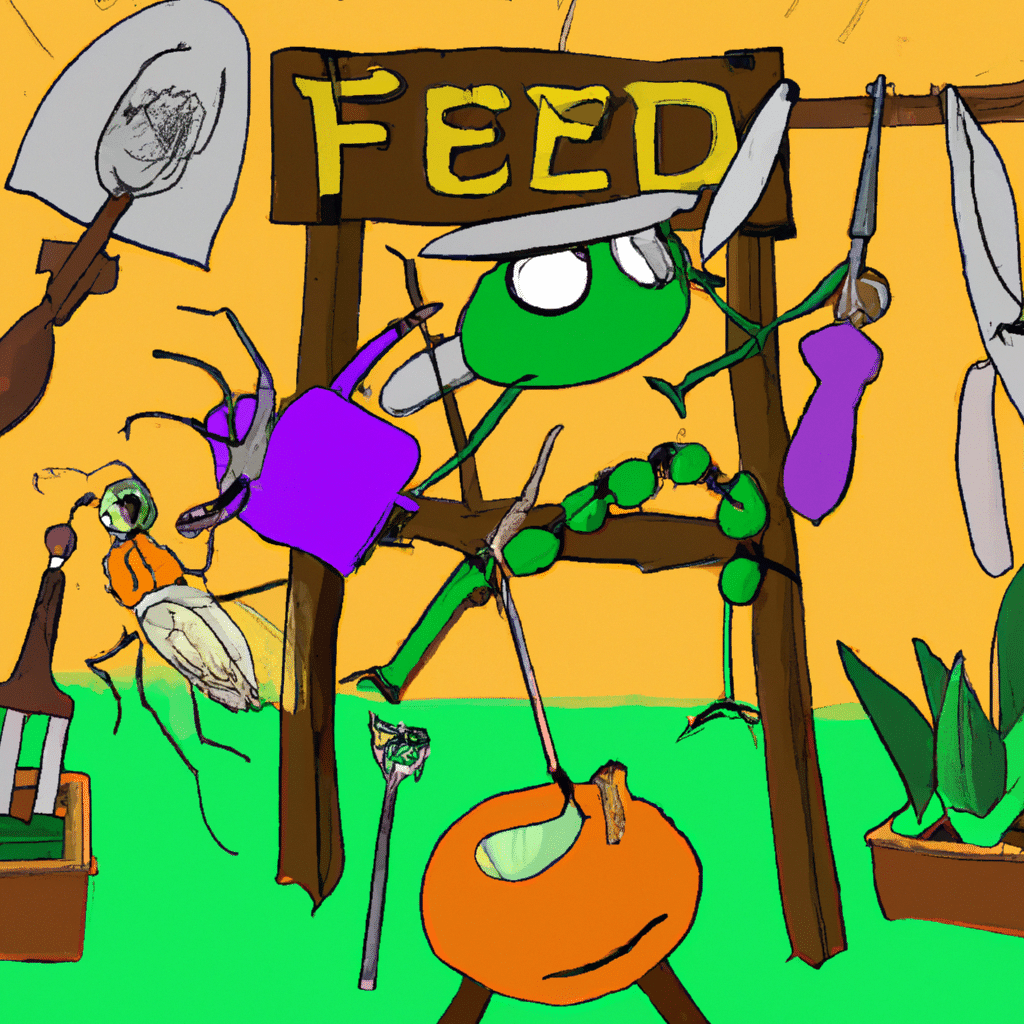Welcome to our comprehensive guide on garden pest warfare! If you’re tired of those sneaky critters wreaking havoc in your precious garden, you’ve come to the right place. In this article, we will delve into unconventional strategies to help you effectively combat garden pests and protect your plants. Say goodbye to damaged leaves and disappointing harvests – let’s get started!

Understanding the Enemy: Common Garden Pests
Before we jump into the strategies, it’s crucial to familiarize ourselves with the common garden pests that often plague our plants. By understanding their behavior and preferences, we can develop targeted methods to deter and eliminate them.
- Aphids: These small, soft-bodied insects feed on plant sap, causing stunted growth and distorted leaves. They reproduce rapidly, so it’s essential to address them promptly.
- Slugs and Snails: These slimy creatures are notorious for munching on young seedlings and tender leaves, leaving behind unsightly trails and holes.
- Caterpillars: The larvae of moths and butterflies, caterpillars have a voracious appetite for foliage, often devouring entire leaves or even entire plants.
- Whiteflies: These tiny, fly-like insects congregate on the undersides of leaves, sucking sap and excreting sticky honeydew, which attracts mold and other pests.
- Squirrels: While not insects, squirrels can cause significant damage to gardens by digging up bulbs, snacking on fruits and vegetables, and even gnawing on branches.
Unconventional Strategies for Garden Pest Control
Now that we have a better understanding of our garden foes, let’s explore some unconventional strategies to combat them head-on. These methods go beyond traditional pesticides and offer a more eco-friendly and sustainable approach.
1. Introduce Beneficial Insects
Nature has its own army of pest controllers. By attracting beneficial insects to your garden, you can establish a natural balance and reduce the population of harmful pests. Some beneficial insects to consider:
- Ladybugs: These small beetles feed on aphids, mealybugs, and other soft-bodied pests.
- Praying Mantises: These fascinating predators feast on a wide range of insects, including caterpillars and beetles.
- Parasitic Wasps: These tiny wasps lay their eggs inside pests like aphids and caterpillars, effectively eliminating them.
2. Companion Planting
Companion planting involves strategically placing certain plants together to deter pests or attract beneficial insects. By harnessing the power of nature’s alliances, you can create a pest-resistant ecosystem within your garden. Here are a few examples:
- Marigolds: These vibrant flowers emit a scent that repels aphids, whiteflies, and nematodes.
- Basil: Planting basil alongside tomatoes can repel pests like flies, mosquitoes, and spider mites.
- Nasturtiums: These beautiful, edible flowers act as a trap crop, luring aphids away from other plants.
3. Physical Barriers and Traps
Preventing pests from accessing your plants is a proactive approach to pest control. Consider implementing the following physical barriers and traps:
- Netting: Use fine mesh netting to protect vulnerable plants from birds, squirrels, and other pests.
- Copper Tape: Encircling containers or raised beds with copper tape can deter slugs and snails, as they dislike the electrical charge it creates.
- Beer Traps: Dig small holes and bury containers filled with beer near plants that are prone to slug and snail attacks. The pests are attracted to the scent and will drown in the beer.
4. Organic Pest Sprays
If pests persist despite your best efforts, you can turn to organic pest sprays as a last resort. These sprays utilize natural ingredients to repel or eliminate pests without harming beneficial insects or the environment. Some effective options include:
- Neem Oil: Derived from the neem tree, neem oil acts as a repellent and disrupts the lifecycle of insects like aphids, caterpillars, and whiteflies.
- Garlic Spray: A mixture of garlic and water can repel a wide range of pests, including aphids, slugs, and beetles.
- Chile Pepper Spray: A concoction of chili peppers and water can deter pests like squirrels, rabbits, and deer due to its strong scent.
Conclusion
Congratulations! Armed with these unconventional strategies, you are now well-equipped to wage war against those sneaky garden pests. Remember, a combination of techniques tailored to your specific pest problems will yield the best results. Embrace the power of nature, experiment with companion planting, and be proactive in protecting your plants. With determination and a little creativity, you can create a pest-resistant garden that thrives and brings you joy for years to come. Happy gardening!



